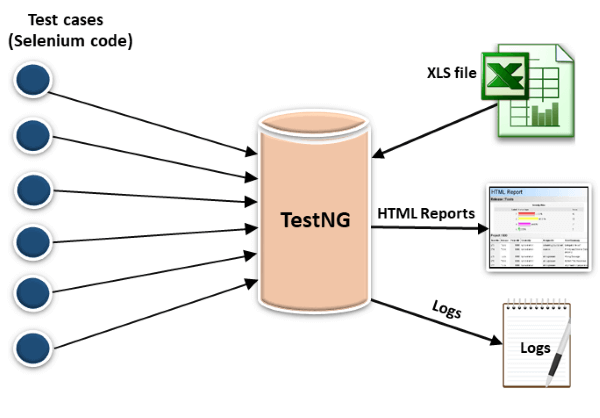TestNG: A Powerful Testing Framework for Java Applications

Introduction:
TestNG is a widely used testing framework for Java applications. It stands for “Test Next Generation” and is designed to address the limitations of the older testing framework, JUnit. TestNG provides advanced features and capabilities that enhance the testing process, making it a popular choice among developers and testers. In this article, we will explore the key features and benefits of TestNG and discuss why it has become a preferred framework for Java application testing.
Key Features of TestNG:
Annotations and Flexible Test Configuration:
TestNG utilizes annotations to define test methods, test suites, and test configurations. This allows for easy organization and customization of tests. Annotations like @Test, @BeforeTest, @AfterTest, and @DataProvider help in specifying the test methods, setup, and teardown procedures. Additionally, TestNG provides XML-based test configuration, enabling the creation of complex test suites by grouping tests based on various criteria.
Test Execution Control:
TestNG offers precise control over test execution. It supports parallel test execution, allowing tests to run concurrently, which significantly reduces execution time. TestNG also supports the concept of dependencies between tests, ensuring that tests are executed in a specific order. This enables efficient test management and provides better control over test flows and interdependencies.
Data-Driven Testing:
TestNG simplifies data-driven testing by providing support for data providers. Data providers can supply test data from various sources such as Excel, CSV, databases, or custom data sources. This allows for running the same test with multiple sets of data, increasing test coverage and ensuring robustness of the application.
Test Reporting and TestNG listeners:
TestNG generates detailed test reports, providing comprehensive information about test execution, including test results, execution time, and success rates. It also supports custom test listeners, which enable users to extend the testing framework and perform additional actions before, after, or during test execution. TestNG listeners are useful for tasks like logging, generating custom reports, and handling test failures.
Benefits of TestNG:
Flexibility and Customization:
TestNG offers great flexibility in test organization and configuration. It allows testers to define and group tests according to their specific needs, making test management more efficient. The XML-based configuration provides a high level of customization, enabling testers to define complex test suites and execute tests with different configurations.
Powerful Assertions and Error Handling:
TestNG provides a wide range of built-in assertions and error handling mechanisms. TestNG assertions allow testers to verify expected results, making it easier to identify and debug failures. Additionally, TestNG provides the flexibility to define custom assertions, ensuring that tests can be tailored to specific application requirements.
Integration and Extensibility:
TestNG seamlessly integrates with various development and build tools such as Eclipse, IntelliJ, Maven, and Ant. It also supports integration with popular frameworks and libraries like Selenium, JUnit, and Spring. TestNG’s extensibility allows users to create custom test runners, reporters, and listeners, enhancing its capabilities and integration with existing testing ecosystems.
Parallel Execution and Performance Testing:
TestNG’s parallel test execution feature is a significant advantage, especially for large test suites. By running tests concurrently, execution time is significantly reduced, leading to faster feedback cycles. Additionally, TestNG can be effectively used for performance testing by simulating multiple users or scenarios and measuring system response under varying loads.
Conclusion:
TestNG is a powerful testing framework for Java applications, offering a wide range of features and benefits. Its flexible annotations, test configuration options, data-driven testing capabilities, and extensive reporting make it a preferred choice for testers and developers. With TestNG, organizations can achieve comprehensive test coverage, faster test execution, and improved test management, ultimately leading to the development of high-quality software applications.
Follow – https://financialapple.com for More Updates



